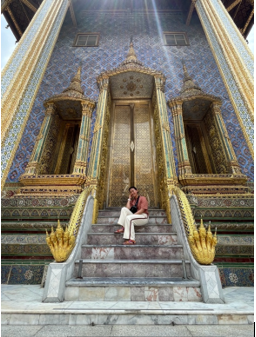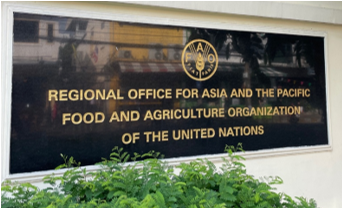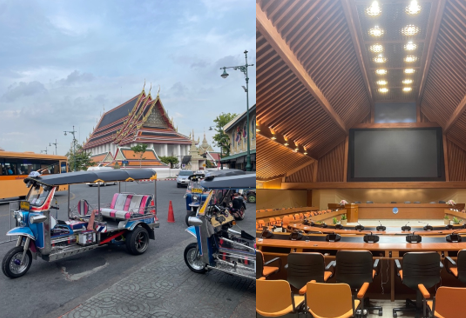Hello! My name is Leeann, and I am an MPH student in the Global Health (GH) concentration. A little bit about myself: I was born and raised in Wilmington, Delaware and did my BA in International Affairs with a concentration in Conflict Resolution and a minor in Business Administration at the George Washington University. After I graduated from GW, I did a total 180 and worked in DC for nearly 4 years in business research for the financial services industry. I was always interested in designing resilient food systems since I served as the GW Garden Manager and also researched transboundary water policy and gender inclusivity in resource management at GW’s Sigur Center for Asian Studies.

As a GH student at UNC, I want to dive deeper into the food-water nexus and build my understanding of how it impacts human health, especially against a backdrop of climate change. From outbreaks of diarrheal diseases due to increased flooding to worsened allergy and asthma seasons from longer pollen seasons to rising food insecurity attributed to drought and beyond, climate change has far-reaching impacts on public health. Thinking about public health through a “One Health” lens means recognizing that humans, animals, plants, and the environment are all connected, and the health of one affects the health of all (CDC, WHO).
This summer, I am working with the Water Program at the United Nations Food & Agriculture Organization’s Regional Office for Asia and the Pacific (FAORAP). This small team develops projects on water scarcity and resources management across the entire Asia and Pacific region, which includes 45 member countries. So how does this all tie into public health?

Humans not only need clean, fresh water to drink and bathe, but we also need reliable water resources to farm. As climate change creates longer dry spells in some areas and wetter wet seasons in others, current food systems around the world are struggling against effects of global warming and the increasing demand for more and more varied foods. On top of the role climate change plays in communicable and zoonotic disease transmission, it also has dire implications for people’s nutrition statuses. The less food we can grow because of extreme weather events and dwindling or polluted water supplies, the less nourished people will be. The Water Program’s projects at FAORAP are all rooted in agriculture but focus on how member countries can better manage their water resources through methods such as accounting (e.g., assessing and projecting how much water a country currently has and will have in the future, how the water is used and distributed, etc.) and allocation (e.g., distributing and managing water resources across various sectors that use water based on calculated need). By improving water resource management, member countries can “halve the number of undernourished people in the region by improving agricultural productivity and alleviate poverty while protecting the region’s natural resource base” (FAORAP’s mission statement).
In one of my projects, I am developing a partnership between UNICEF and FAO’s offices in Asia and the Pacific to strengthen cooperation between the water for agriculture and water for sanitation and hygiene (WASH) sectors across island nations in the Pacific, Timor-Leste, and Papua New Guinea. The two sectors have traditionally been siloed and this can have negative consequences for water resources management, as the two critical sectors compete for water resources. Instead, this project proposes developing a partnership between UNICEF and FAO To support the priority countries in combining the strengths and goals of their WASH and water for agriculture sectors, applying a participatory approach by engaging water users to build an adaptive capacity to “climate proof” these solutions, and garner support for changes to water policy and regulations.

Being in Bangkok has been super exciting. Every day is an adventure to get to the office at Maliwan Mansion along the Chao Phraya river. Bangkok traffic is notoriously bad and the buses run on vibes, not a schedule so sometimes I’ll take a boat to work because it’s faster. So many tropical fruits are in season here, and the street food scene is absolutely unbeatable. The weather has been unbearably hot, but the rainy season is about to come and cool the city down. The diverse architecture of old homes, grand temples, and glass skyscrapers makes Bangkok so unique and so beautiful. It’s been a blast so far, and I’m looking forward to spending more time getting to know this city and embarking on this adventure with FAO. Thanks for reading my blog!

– Leeann
